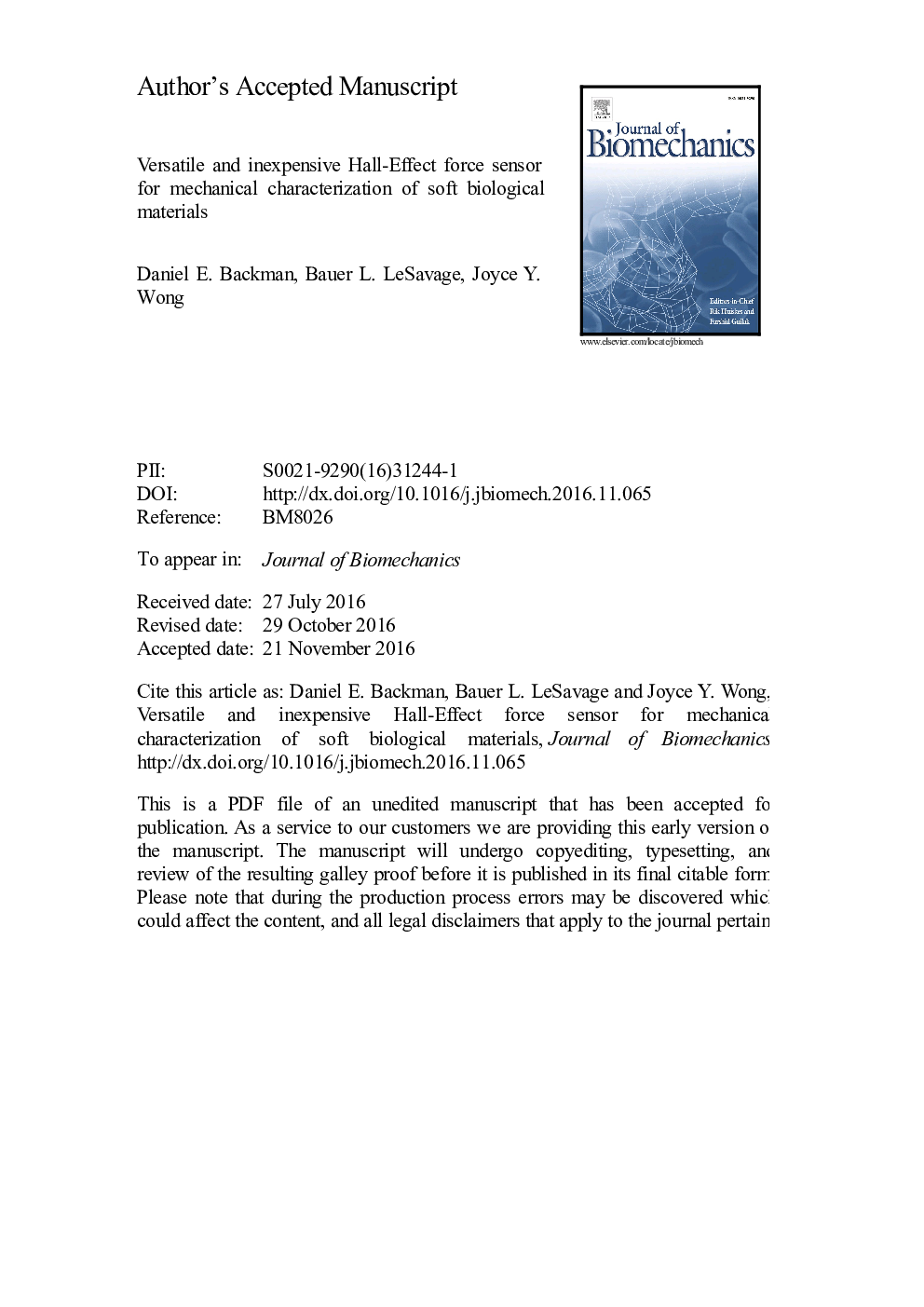| Article ID | Journal | Published Year | Pages | File Type |
|---|---|---|---|---|
| 5032083 | Journal of Biomechanics | 2017 | 24 Pages |
Abstract
Mismatch of hierarchical structure and mechanical properties between tissue-engineered implants and native tissue may result in signal cues that negatively impact repair and remodeling. With bottom-up tissue engineering approaches, designing tissue components with proper microscale mechanical properties is crucial to achieve necessary macroscale properties in the final implant. However, characterizing microscale mechanical properties is challenging, and current methods do not provide the versatility and sensitivity required to measure these fragile, soft biological materials. Here, we developed a novel, highly sensitive Hall-Effect based force sensor that is capable of measuring mechanical properties of biological materials over wide force ranges (μN to N), allowing its use at all steps in layer-by-layer fabrication of engineered tissues. The force sensor design can be easily customized to measure specific force ranges, while remaining easy to fabricate using inexpensive, commercial materials. Although we used the force sensor to characterize mechanics of single-layer cell sheets and silk fibers, the design can be easily adapted for different applications spanning larger force ranges (>N). This platform is thus a novel, versatile, and practical tool for mechanically characterizing biological and biomimetic materials.
Keywords
Related Topics
Physical Sciences and Engineering
Engineering
Biomedical Engineering
Authors
Daniel E. Backman, Bauer L. LeSavage, Joyce Y. Wong,
